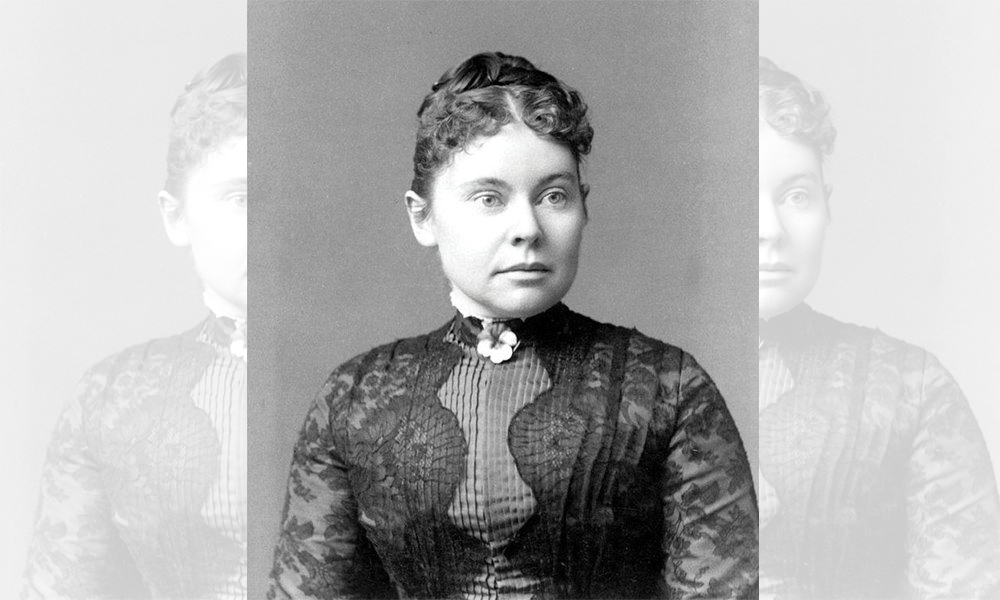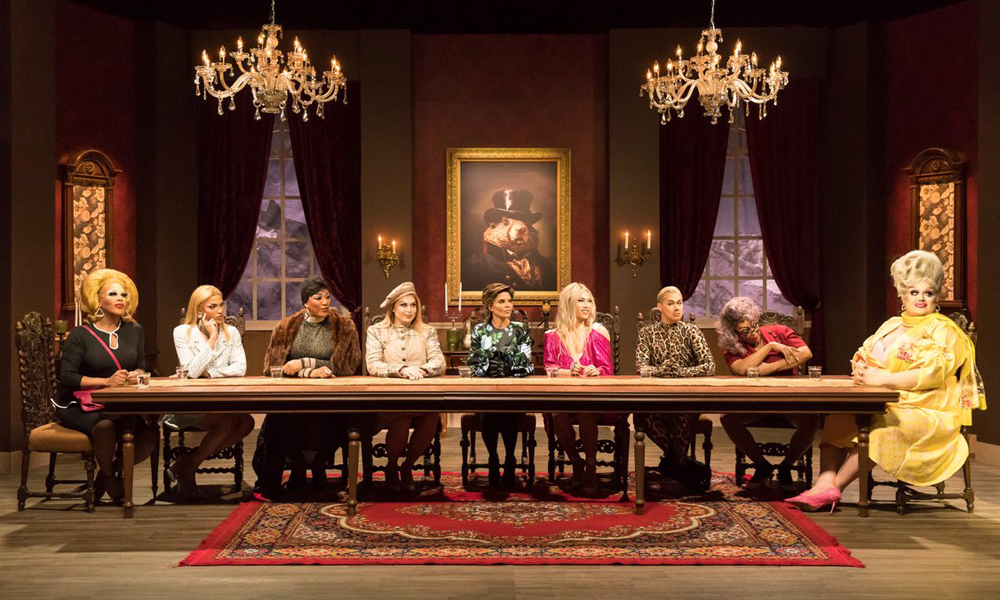Are the theories about her sexuality based on fact or nothing more than rumours?…
By Courtney Hardwick
If you’re a true crime fan, you know there’s no shortage of books, documentaries, podcasts and original reporting dedicated to the victims of violent crimes and the people who commit those crimes. At the same time, we know that cases that get the most attention are usually ones that are committed against white, middle class, cisgender people. From serial killers like Ted Bundy, the Golden State Killer and Paul Bernardo to victims of the most talked-about unsolved cases like JonBenet Ramsey, the media is busy covering a certain (very small) selection of cases. Meanwhile hate crimes, including murders of gay, trans and non-binary people are on the rise. Queer Crime is a monthly column focusing on true crime with an LGBTQ+ spin whether it’s the victim or the perpetrator.
This month we’re shining the spotlight on accused axe murderer Lizzie Borden. Charged with the murders of her father Andrew and stepmother Abby in 1892, Lizzie was the defendant in the “trial of the century” where she was ultimately found not guilty. No one else has been charged with the murders and they remain unsolved to this day. The mystery of who killed Andrew and Abby—and the interest in the case—has persisted for over 130 years and led to countless theories for what really happened.
Lizzie was 32 years old when she was arrested for the murders of her father and step-mother. She was still living with them and expressed no interest in getting married or starting a family of her own. The spinster lifestyle was unusual at the time but Lizzie also participated in the community and was involved in the church which gave her a certain level of social capital not always available to middle class unmarried women. From money to social status to possible sexual abuse, there are a number of reasons why Lizzie might have wanted to kill her parents, but none could ever be proven without a doubt.
Almost 100 years after the murders, the 1984 novel Lizzie by Ed McBain floated the possibility that Lizzie was secretly a lesbian and may have been having an affair with the family’s maid, Bridget Sullivan. When Andrew and Abby found out about the affair, their reaction drove Lizzie to murder them either out of rage or to hide her secret—or both. It’s a theory that is impossible to prove now but it still caught on. It is so ubiquitous that some people actually think it is fact simply because they’ve heard about it so many times. In reality, there was no mention of Lizzie’s sexual orientation in her trial and it didn’t seem to be a theory the media or the locals indulged.
The Lizzie Borden was actually a murderous lesbian theory has a sensationalist quality to it and, being such a recent theory, it may have gained steam because of its entertainment value rather than the actual facts. In the Hays Code era of Hollywood, queer characters were considered “deviant” and could not be portrayed as being rewarded. There are still examples of the murderous closeted lesbian trope in mainstream media today. In Black Swan, Natalie Portman’s character’s attraction to women is a key detail in her descent into madness. In Rebecca, the title character’s obsession with her boss—a woman—leads her to murder.
Making Lizzie Borden a lesbian explains her actions in a way that makes sense to the tropes we’re used to and the theory has continued to spark new interpretations of the events. The 2018 film Lizzie, starring Chloe Sevigny as the title character and Kristen Stewart as Bridget, takes the lesbian theory deeper and shows a (completely fictionalized) version of how Lizzie’s secret affair with the maid may have driven her to murder. From the lesbian romance being presented as a response to rape to sexualization of the murder scenes, the film is an example of how lesbians are still characterized as “going through a phase” or harbouring dark urges that manifest in their sexual orientation.
In 1892, the prosecution against Lizzie involved little solid evidence and was made up of mostly misogynistic assumptions and unsubstantiated rumours. She was acquitted because the jury couldn’t bring themselves to believe that a women of Lizzie’s socio-economic status could be capable of such a grisly crime. As far as anyone can tell from the records, the verdict was based on social standing and had nothing to do with ideas around sexual orientation.
After she was acquitted, Lizzie and her older sister Emma used their inheritance to buy a new house in a different part of town. They were generally reclusive but Lizzie made friends with a stage actress named Nance O’Neill. According to news reports, Emma did not approve of the relationship and eventually moved out. Rumours that Lizzie and Nance had a sexual relationship swirled.
While the notion that Bridget and Lizzie were having an affair is basically pure fan fiction, the possibility that Lizzie had a romantic relationship with Nance O’Neill—who was an out and proud lesbian—is much more likely. It is still based on rumour and conjecture rather than fact and we all know its very possible for two women to have a close relationship that has nothing to do with romance. Still, this relationship helped bolster the lesbian theory into what it is today.
Although we’ll never know the truth for sure, public opinion remains that Lizzie Borden did kill her parents. Money and a desire for freedom are the most likely motives, but given how “deviant” sexuality has been portrayed over the last century, it’s no surprise that Lizzie Borden was an axe murdering lesbian, is now the dominant theory.
As part of the true crime as entertainment genre, infamous cases like the Borden murders come across more like legend than something that actually happened. As time passes and the truth gets further and further away, the story becomes more ripe for interpretation. We’ll never know the truth anyway, and it’s not hurting anyone so why not, right? But relying on the same tropes continues to reinforce them, leaving less space for more nuanced portrayals of LGBTQ+ experiences.
Lizzie Borden may or may not have been a lesbian, but we do know that there was a lot more to her—and the murders—than who she was attracted to.
For more of Courtney Hardwick’s fascinating QUEER CRIME series click here.






Gretchen / 08 December 2022
“In Rebecca, the title
character’s obsession
with her boss—a woman
—leads her to murder.”
Oh man, 100%wrong
1 – Rebecca, the title
character, is the boss
2 – Mrs. Danvers, her personal maid/housekeeper is obsessed with Rebecca
3 – Rebecca is murdered by her husband, doesn’t do any murdering, despite being a horrible nasty person
4 – Mrs. Danvers also doesn’t do any murder, though she sets a house on fire (possibly someone could have died in the fire, but it’s never mentioned). She also tells the protagonist to commit suicide, but it doesn’t work
The author, Daphne DuMaurier, was a closeted lesbian or at least bi. The book is a gold-mine of misogynistic-and-other-problematic tropes for sure, but man, your facts are Confused.